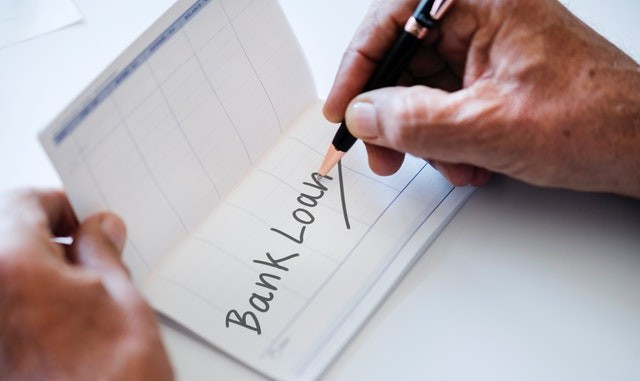Student Loan Default and Delinquency - Rate, Consequences, and Settlement
Know what is student loan default and delinquency? Read more about its consequences and steps to avoid.
Updated by Sharan Kumar on 22nd October 2020
Student loan default and delinquency are two sides of the same coin except for the value which changes for both.
When you are late to make your student loan payment, be it by 1 day or a week then your student loan is delinquent.
But this change when it involves a continuous process of being in a delinquent state or long-standing delinquency even though you have been making payments. If they are late even by a day for a regular number of months, then your delinquent loan moves to default.
It usually leads to having bad consequences such as a change in the relationship with your lender and possibly your future lenders as well.
Table of contents
- Federal student loan delinquency and default
- Differences between delinquency and default
- Impact of student loan delinquency
- How to get out of student loan delinquency?
- Student loan default help
- How to avoid falling behind on payments
- What to do in the worst-case scenario?
What are federal student loans delinquency and default?
When you signed the paperwork to borrow money to pay for your college education, you agreed to be legally responsible to repay that money under a certain set of terms and conditions.
Delinquency and default are both words used to describe some sort of inability in keeping to those terms.
 source - pexels.com
source - pexels.com
Student loans delinquency
A federal student loan can be considered delinquent when a borrower has not made a successful payment or paid an installment before the due date has passed. Most lenders don't report this to the credit bureaus until and after 30 days have passed since the payment wasn't made and it's been 30 days since the due date.
It can happen if you miss even a single payment on the student loan. So technically being even a couple of days late on your loan means you are delinquent on your loans.
Serious delinquency is usually considered when the borrower is late by at least 90 days with his/her payments since the last due date when the payment was supposed to be made. If continued the loans will move to default.
Learn more on Student loan delinquency
Student loans default
A federal student loan is certainly considered to be in default most often when the borrower does not make the required loan payments for an extended period of time and most often this time period is approximately 270 days from the last due date when the payment was missed.
Normally, we can consider a federal student loan to not be in default until it turns out to be delinquent for a period of about 360 days since the lender usually has a timeline of 90 days to file for a default claim. Most often lenders tend to proceed for the entirety of those 90 days to proceed with reporting and claiming the defaulted loan status.
Whereas most private student loans usually after a period of about 120 days of delinquency are considered to be the default.
Also, not every delinquent loan borrower will turn his/her loan into a defaulted loan as explained below.
For example, only about 2/3rd of borrowers who are between 31-90 days of delinquency on their loans will end up progressing to a period of between 91-180 day delinquency.
From this, only about 2/3rd of those will eventually progress to a period of 181 to 270 days delinquency and from that about 2/3rd of them will ultimately go into default.
Learn more about Student loan default
The outcome
Ultimately, about a quarter of student loan borrowers with a period of 31-90 day delinquency will eventually end up in default.
The student loans report defaults as part of a cohort study federal student loan default rate. The cohort studies student loan default rate is a relatively short-term student loan default rate measure, which is reporting the percentage of borrowers that are entering repayment in one federal fiscal year who end up in default on their loans by the end of the second following federal fiscal year.
In Cohort studies, default rates are around half of the long-term of loans.
Private student loans usually report a charge-off rate which is the percentage of loan dollars that was outstanding which was written off during the previous year. Most of this occurs within the first 4-5 years of loan repayment.
Private student loans tend to have lower student loan delinquency and default rates than federal loans, partly because private student loans are credit-underwritten.
When other financial aids and federal student loans aren't sufficient enough to cover all costs, one should consider financing the gap with private student loans.
Look around to find the loans that will best fit your needs.
Differences between delinquency and default
If dealing with your student loan debt alone wasn’t bad enough, all the confusing rules and terms around repayment just add salt to the wounds.
Going through the requirements can make it feel like you're trying to translate a foreign language. All this added difficulty isn’t exactly what you’re hoping for when you’re already struggling to make your payments.
So if you’re precariously close to missing a payment, or have already missed payments, begin here to understand the difference between student loan on default and delinquency – and what you may do if you find yourself in either one of these situations.
| Delinquency | Default |
| The day you miss to make your student loans payment --> your loans are delinquent. | If your loans are delinquent and you haven't made any payments for at least 290 days --> your loans move to default. |
| After 90 days and beyond, your loan servicer will report the delinquency to the national credit bureau. | After 9 months / 270 days of non-payments, your student loans can go to default and is reported to the credit bureau affecting your credit scores poorly. |
| 5% of late fees can be charged depending on the servicer. | Adverse consequences like wage garnishment occur when your loans are in default |
The above table has the major differences between delinquency and default.
Adverse consequences of student loans delinquency
In most cases, delinquency can be fixed by simply making payments of the overdue amount, plus any fees or charges that were resulting from the same.
Normal payments may begin immediately afterward. The student loan default consequences are mentioned below.
The time period of delinquency
In contrast, default status usually triggers the remainder of your loan balance to be due in full as in requiring the rest of the loan that is due to be paid in whole to complete the loan and unable to resume payments by clearing that which is already due since the time period of delinquency, ending the typical installment payments that were outlined in the original loan agreement.
-
Rescuing and resuming the loan agreement is most often difficult but not impossible which we will discuss further ahead.
-
When you’re in delinquency, your student loan servicer will be obliged to send you a notice if you’re more than 15 days late on your payment.
-
Being late on a payment once or twice won’t make such a dramatic impact on your financial situation right away, but it can and most probably will impact your student loan credit score.
 source - pexels.com
source - pexels.com
Loss of benefits
The more immediate consequence might be the loss of benefits on your loans, such as interest rate discounts.
Being delinquent on your loans for a period of time long enough such that you eventually enter loan default will most definitely cause your student loan credit score to drop dramatically.
It makes you seem to be less creditworthy to financial institutions and will prevent you from the possibility of receiving the lowest possible interest rates on any other loans you might apply for or even have trouble with having them being approved too.
This can be a pretty serious issue in the future. It’s not such an easy task to repair a credit score once it’s tanked, and if you end up defaulting on your loans this can do serious damage to your student loan credit score.
Being in default can also attract a more severe action on the part of your loan servicer.
Credit score
It adversely affects the borrower's credit score, but default reflects extremely negatively on it and also on his consumer credit report, which eventually makes it difficult or even prevents you from borrowing money in the future.
He/she may have trouble obtaining any or all of the following such as a mortgage, purchasing homeowners' insurance, and getting approval to rent an apartment.
For these reasons, it is always best to take action as soon as possible to remedy a delinquent account before reaching the default status.
Again, signing the loan at the time when you borrowed the money put you in a legally binding agreement with the loan servicer or the lender in which you promised to repay your balance according to the terms and conditions as mentioned in the agreement made at that time.
Effect on wage
Defaulting could allow the loan servicer/lender to garnish your wages or withhold any potential tax refunds that you were supposed to receive until you completely repay the balance of the loan (And that balance becomes due in full when you default!)
Additional collection methods can and not necessarily stop at including taking Social Security benefits, refusing to issue new loans or grants, and even charging additional fees for clearing any collections in default.
Ways to get out of delinquency and default
Getting out of delinquency requires a relatively simple action - to make your payment as soon as possible.
This is easy and simple – but not necessarily so if you have to struggle in making at least the minimum payment necessary.
Student loan default help
If you somehow do find yourself in default on your student loans, you do have a few options for getting yourself out of the situation pronto.
-
The first is to completely repay your loan in. This might only be realistic if the loan is only a few thousand dollars and you’re able to manage and come up with the cash.
-
A final option is loan consolidation. This wouldn’t magically make all the money you owed disappear. in fact, consolidation means you are taking out another loan, repaying the original loans with the money from the new borrowed loan, and starting a new payment plan using the new loan.
-
For any larger balances, it might be necessary to consider student loan rehabilitation. The federal government does offer a few programs for rehabilitation, but this might not always be the best route depending on the type of student loan debt you have.
-
Refinancing your student loans helps you to manage your payments, and also lower your interest rates. Any steps taken in advance to manage your repayment will help you not enter default and delinquency. It is advised to have an in-depth understanding of how to refinance defaulted student loans
It is necessary, to understand how important it is to avoid student loan defaults as it can affect you in multiple ways. Student loan default affects your financial, professional, personal life drastically. Therefore it is advised to take measures to not enter default.
If you have private student loans, the number of repayment options are less. But missing on-time payments will land you in default loans. Private student loan default describes the causes, consequences, prevention, and help needed with private student loans. Postpone student loan payment can also be a useful option to consider.
Learn more about Postpone student loan payments
Steps to avoid missing payments
These are the ways through which you can solve the situation once you unluckily find yourself in it. But the best course of action is to avoid as much as possible both delinquency and ultimately default altogether.
-
Set up a good and sound budgeting system so you’re effectively able to manage your money each month.
-
Work hard to save more and create a bigger gap between your income and your expenditure, so you have enough and more cash flow to cover your student loan payments and then some.
-
If you’re maxed out on how many costs you can cut and don’t know how to save anymore, it’s time to look at ways of increasing your income.
-
You can begin with your current job and pursue to earn and negotiate a raise, or you may choose to increase your workload and pick up a side hustle to make some extra cash.
Actions to be taken once your student loans are in default
Sometimes, you simply are unable to make enough money to make your payments. Thankfully, that doesn’t mean that your immediate result is delinquency.
Step one is to reach out to your loan servicer and have a talk to understand your options.
You can avoid delinquency by changing your due date to a point in the month when you can make the payments with enough cash in hand or even your payment plan as a whole.
There is always some step, however tiny or temporary, that you may be able to take to avoid finding yourself in such a situation. Don’t lose hope and don’t avoid the part that involves doing anything at all.
Another option that you can take advantage of would be a student loan settlement.
In this solution, your loan can be rescued from its defaulted state with what is called a "settlement", where you are expected to make one lump sum payment as a measure of repayment. The good news is that sometimes you could end up paying less than what you borrowed. Some settlements even allow payments in installments.
Your worst option is to sit there and do nothing, as a lack of a form of action can lead to serious and dire consequences for your financial situation at that moment and in the future.
| Minumum Credit Score | Apply in as little as | Variable APR | Fixed APR | ||
|---|---|---|---|---|---|
 | Not Available | 15 minutes or less | 2.95 | 4.74 | View disclosures |
 | 620 | 2 minutes | 5.38%-16.99%1 | 4.43%-16.99%1 | View disclosures |
 | Not Available | 15 minutes | 1.13% - 11.23%¹ (with autopay) | 3.50% - 12.60%¹ (with autopay) | View disclosures |



93.jpg)


28.jpg)
